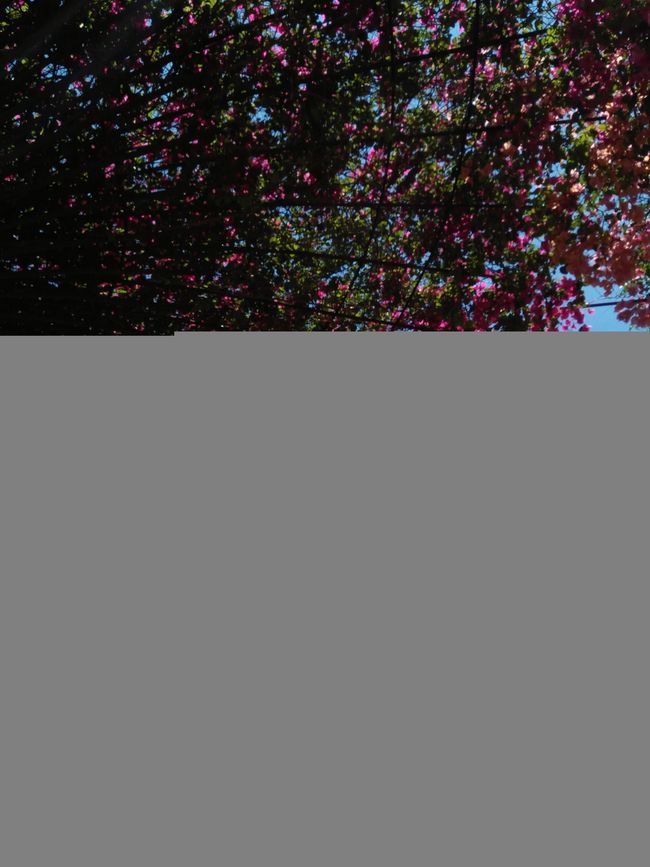- leetcode中等.数组(21-40)python
九日火
pythonleetcode
80.RemoveDuplicatesfromSortedArrayII(m-21)Givenasortedarraynums,removetheduplicatesin-placesuchthatduplicatesappearedatmosttwiceandreturnthenewlength.Donotallocateextraspaceforanotherarray,youmustdoth
- Vicky的ScalersTalk第六轮新概念朗读持续力训练Day73 20210411
Vicky_b9de
练习材料:ModerncavemenPart-3ˈmɒdənˈkeɪvmənpɑːt-3Theyplungedintothelake,andafterloadingtheirgearonaninflatablerubberdinghy,letthecurrentcarrythemtotheotherside.Toprotectthemselvesfromtheicywater,theyhadtow
- 掌中星
江封时
chapter.1易言相信,林半星会是他人生中最美丽的一个意外。对,意外。青春里的意外。第一次遇见林半星,是在学校门口拐弯处的停车棚。由于大家基本上都不想挤公交又不情愿步行到学校,从上学期开始就有许多学生骑自行车过来,于是就有了这个学校临时搭建的简陋的停车棚。易言家的小店和小屋子在学校对街,虽然离学校不远,但他讨厌步行,为了方便,还是骑上了父亲的有些年头的黑色自行车。黑色自行车甚至还没有街边的共享
- Github 2024-09-12 Go开源项目日报Top10
老孙正经胡说
githubgolang开源Github趋势分析开源项目PythonGolang
根据GithubTrendings的统计,今日(2024-09-12统计)共有10个项目上榜。根据开发语言中项目的数量,汇总情况如下:开发语言项目数量Go项目10C项目1Terraform:基础设施即代码的开源工具创建周期:3626天开发语言:Go协议类型:OtherStar数量:40393个Fork数量:9397次关注人数:40393人贡献人数:358人OpenIssues数量:1943个Git
- 系统设计DDIA之Chapter 7 Transactions 之防止丢失更新
暴躁老哥在线刷题
SystemDesign数据库系统设计大数据系统架构DDIA
防止丢失更新涉及处理多个事务并发写入时发生的各种冲突类型。虽然“读已提交”和“快照隔离”等隔离级别管理与读取相关的冲突,但防止丢失更新需要额外的措施来处理写写冲突。丢失更新问题:当两个事务同时读取一个值,对其进行修改,然后将修改后的值写回时,会发生这种问题。一个修改可能会覆盖或“破坏”另一个修改,导致更新丢失。例子包括递增计数器、更新复杂文档,或多个用户同时编辑相同内容。防止丢失更新的解决方案:原
- 随摘
桔桔岛
Oneshouldcaremoreaboutone'sowngrowthinsteadofothers.Toliveahappylife,oneshouldalwaystryeveryefforttominimizeregretsinlife.比起时刻注视着他人,多关注自身的成长,尽自己的一切努力让生活少点遗憾,才能过上快意人生。Whenoneshiftstheirfocusfromotherst
- 如何利用命令模式实现一个手游后端架构?
隔窗听雨眠
命令模式
命令模式的原理解读命令模式的英文翻译是CommandDesignPattern。在GoF的《设计模式》一书中,它是这么定义的:Thecommandpatternencapsulatesarequestasanobject,therebylettingusparameterizeotherobjectswithdifferentrequests,queueorlogrequests,andsuppo
- OpenAI gym: How to get complete list of ATARI environments
营赢盈英
AIaideeplearningopenaigymreinforcementlearning
题意:OpenAIGym:如何获取完整的ATARI环境列表问题背景:IhaveinstalledOpenAIgymandtheATARIenvironments.IknowthatIcanfindalltheATARIgamesinthedocumentationbutisthereawaytodothisinPython,withoutprintinganyotherenvironments(e
- Go学习笔记
南方淮竹
golanggolang学习笔记常识后端开发语言人工智能
Go环境变量GOROOT:Go语言安装根目录的路径。GOPATH:若干工作区目录的路径,我们自己定义的工作空间。GOBIN:GO程序生成的可执行文件(executablefile)的路径。国内镜像https://goproxy.cn#macOSorLinuxexportGO111MODULE=onexportGOPROXY=https://goproxy.cn#othersgoenv-wGO111
- Linux文件权限管理
不屈的铝合金
边学边记-linuxlinux服务器运维centos
1.文件权限位说明Linux文件或目录的基本权限位是由九个字符来控制的,每三位字符为一组。前三位是用户权限位中三位表示用户组权限位后三位表示其他用户权限位rwxr-xr-xuser(用户)group(用户组)others(其他用户)代表字符为u代表字符为g代表字符为o2.文件权限详细说明2.1普通文件对应权限的详细说明Linux系统中的权限对于文件和目录来说,是有一定区别的。普通文件对应的权限:权
- The Magician's Nephew Chapter15
Mr_Oldman
"Oh,"saidDigory,verysurprised."Well,alright,I'llsayI'msorry.AndIreallyamsorryaboutwhathappenedinthewaxworksroom.There:I'vesaidI'msorry.Andnow,dobedecent(正派的)andcomeback.Ishallbeinafrightfulholeifyoudo
- We are talking about 《WAR IS A LIE》
MichaelSure
图片发自App图片发自AppTodayIreadabookwhichiscalledWarisalie.ThisisabookwrittebyDavidSwanson,anAmericanwriterwhofightsagainstthewar.WarisawordalwaysrelatetotheUnitedStatesandDavidthinkhismotherlandisthebiggest
- vscode连接docker容器
梦想成为大佬的王老八
vscodedockeride
需安装插件Docker和RemoteDevelopment。连接时报错:Failedtoconnecttotheremoteextensionhostserver(Error:Theoperationwasaborted)解决方案:卸载重装,重新打开
- 如何使用Flutter为iOS和Android应用设置Firebase
cukw6666
数据库androidjavapythonios
Firebaseisagreatbackendsolutionforanyonethatwantstouseauthentication,databases,cloudfunctions,adsandcountlessotherfeatureswithinanapp.Luckilyforus,FlutterhasofficialsupportforFirebasewiththeFlutterFir
- [学习笔记]《CSAPP》深入理解计算机系统 - Chapter 4 处理器体系结构&Chapter 5 优化程序性能
Artintel
学习学习笔记ccsapp
总结一些第四章和第五章的一些关键信息Chapter4处理器体系结构将处理组织成阶段Chapter5优化程序性能Chapter4处理器体系结构在硬件中,寄存器直接将它的输入和输出线连接到电路的其他盆。在机器级变成中,寄存器代表的是CPU中为数不多的可寻址的字,这里的地址是寄存器的ID。这些字通常都存在寄存器文件中,虽然我们会看到硬件有时可以直接将一个字从一个指令传到另一个指令,以避免先写寄存器文件再
- csapp-chapter1
SFARL
博客c++
title:csapp_chapter1date:2020-06-1319:24:20tags:[网课,CSAPP,第一章]CSAPP和CMUIntroductiontocomputersystem(CS15-2132015fall)的笔记。相关资料Textbook在vscode上使用C1.COURSE-OVERVIEW从编程者的角度来讲述计算机系统。这也是为什么我第一门课选择这个的原因,因为自己
- CSAPP 学习笔记 Chapter two
ZSYGOOOD
careermilestone笔记CSAPPcsapp
先导“单个的位只能表示有/无的概念,把位组合在一起,加上解释,即给不同的可能位模式赋予含义,就能够表示任何有限集合的元素”位模式:0/1字符串,其中每个数位具有权重“计算机表示法是用有限数量的位来对一个数字编码,当结果太大以至于不能表示时,某些运算就会溢出(overflow)”“整数的运算满足整数算律,虽然可能溢出但是结果都相同”(500*400)*(300*200)=((500*400)*300
- [学习笔记]《CSAPP》深入理解计算机系统 - Chapter 6 存储器层次结构
Artintel
学习学习笔记ccsapp
总结一些第六章的一些关键信息Chapter6存储器层次结构DMA局部性抖动Chapter6存储器层次结构随机访问存储器(Random-AccessMemory,RAM)分为两类:静态的和动态的。静态(SRAM)比动态更快,更贵动态(DRAM)数据流通过称为总线(bus)的共享电子电路在处理器和DRAM主存来来回回。每次CPU和主存之间的数据传送都是通过一系列的步骤来完成的,这些步骤称为总线事务(b
- 【硬件工程师面经整理12_逆变器篇】
LeeYLong
硬件工程师面经硬件工程面试经验分享学习方法学习
文章目录逆变器1.1半桥逆变(half-bridgeinverter)电路1.2全桥逆变(H-bridgeinverter)1.3H桥电路结构,用的是什么管子,有没有出现问题,怎么解决的逆变器逆变电路的基本工作原理单相桥式逆变电的电阻负载简化电路图其基本工作原理是:0-t1时间段开关T1和T4闭合,负载电压为正;2)t1-T时间段开关T3和T2闭合,负载电压为负。其负载电流的变化在电阻负载下是与电
- Fortress Besiege 004
努力每一天JM
Chapter2上Sentences1.haveaverychildishtemperament2.inthepresenceofthemansheloves,everywomanhastheamazingpowerofrejuvenation3.inanapologetictone4.blushhalfinpleasureandhalfinanger5.havesb'sluggageinspec
- 【OpenCV】官方文档学习,库的命名冲突处理办法【声明命名空间】
深耕AI
opencv学习人工智能
原文:SomeofthecurrentorfutureOpenCVexternalnamesmayconflictwithSTLorotherlibraries.Inthiscase,useexplicitnamespacespecifierstoresolvethenameconflicts:Mata(100,100,CV_32F);randu(a,Scalar::all(1),Scalar::
- Thinking,fast and slow CH6
哇620
Chapter6Norms,SurpriseandCausesThemainfunctionofSystem1istomaintainandupdateamodelofyourpersonalworld,whichrepresentswhatisnorminit.我们对这个的认知是由系统1快速作出反应的,比如听到“桌子”这个词,我们马上能知道他是个什么样子,这也是类人能够沟通的基础。而这些认知是不
- JAVA数组元素的遍历_Java数组元素的遍历
知更社区
JAVA数组元素的遍历
Java数组元素的遍历packagecom.wkcto.chapter03.demo01;importjava.util.Arrays;/***数组的定义,元素的访问与遍历*@author蛙课网**/publicclassTest01{publicstaticvoidmain(String[]args){//1)定义一个数组,存储5个int类型数据int[]data=newint[5];//定义数
- 第一章 认识Mybatis的核心组件
qq_38911531
1、可以从http://www.softpedia.com/get/Programming/Other-Programming-Files/MyBatis.shtml下载mybatis的jar包。2、mybatis的核心组件mybatis是由4个部分构成,sqlsessionFactoryBuilder(构造器),他会根据配置或代码来生成sqlSessionFactory,采用的是分布构建的Bui
- IBM MQ 通道状态
yangkei
通道MQMQIBMMQ
通道可以随时处于多种状态之一。一些状态也有子状态。通道可以从给定状态移动到其他状态。下图显示了所有可能的通道状态的层次结构以及适用于每个通道状态的子状态。Figure1通道状态之间的流动Figure2CurrentandactiveAchanneliscurrentifitisinanystateotherthaninactive.Acurrentchannelisactiveunlessitis
- 实现两个窗口通信方法之postMessage
itKingOne
javascriptpostmessage页面通讯跨域通讯
两个窗口的通信问题应该是一个比较常见的问题了,通信可以通过很多种方式,如下:localStoragepostMessagewebsocket今天博主先来一篇postMessage干货,后期还会给出websocket的实现代码。首先来看一下基本的语法otherWindow.postMessage(message,targetOrigin,[transfer]);otherWindow其他窗口的一个引
- 《过往》连载:Chapter.09衣带渐宽终不悔(4)
投资人老A
这学期的课程中开了一门观赏鸟类欣赏,发的教材象一本画册,详细记录了中国名贵鸟种和珍稀鸟种,这些鸟类确实估计有可能我赚一辈子的钱也买不到的,对我们来说,没有多大的实际意义系里为了配合教学就从市场上买回一些普通鸟类,大都是虎皮鹦鹉,绣眼麻雀之类的。由于我们不懂得饲养,一星期内就死了一半,剩下的十几个鸟笼里每个鸟笼里只有那么一两只,为了照料这些鸟,我们组的十几个人便轮流值日,主要负责打扫鸟的粪便以及饮食
- nginx过滤爬虫访问
梓沂
nginx爬虫运维
思路来自ai:Nginx可以通过多种方式来限制爬虫的行为:1.**User-Agent限制**:可以通过检查HTTP请求的User-Agent头部来识别并限制某些爬虫。例如,可以在Nginx配置文件中使用`if`语句来检查User-Agent,并使用`return`指令拒绝特定的User-Agent。```nginxif($http_user_agent~*(BadCrawler|AnotherB
- 《小王子》第十一章
一只快乐的小肥肥
Chapter11-thelittleprincevisitstheconceitedmanThesecondplanetwasinhabitedbyaconceitedman."Ah!Ah!Iamabouttoreceiveavisitfromanadmirer!"heexclaimedfromafar,whenhefirstsawthelittleprincecoming.For,toconc
- vulnhub靶机-DC2-Writeup
含日
靶机linux安全靶机渗透测试安全漏洞
0x01部署靶机地址:https://www.vulnhub.com/entry/dc-2,311/DESCRIPTIONMuchlikeDC-1,DC-2isanotherpurposelybuiltvulnerablelabforthepurposeofgainingexperienceintheworldofpenetrationtesting.AswiththeoriginalDC-1,i
- github中多个平台共存
jackyrong
github
在个人电脑上,如何分别链接比如oschina,github等库呢,一般教程之列的,默认
ssh链接一个托管的而已,下面讲解如何放两个文件
1) 设置用户名和邮件地址
$ git config --global user.name "xx"
$ git config --global user.email "
[email protected]"
- ip地址与整数的相互转换(javascript)
alxw4616
JavaScript
//IP转成整型
function ip2int(ip){
var num = 0;
ip = ip.split(".");
num = Number(ip[0]) * 256 * 256 * 256 + Number(ip[1]) * 256 * 256 + Number(ip[2]) * 256 + Number(ip[3]);
n
- 读书笔记-jquey+数据库+css
chengxuyuancsdn
htmljqueryoracle
1、grouping ,group by rollup, GROUP BY GROUPING SETS区别
2、$("#totalTable tbody>tr td:nth-child(" + i + ")").css({"width":tdWidth, "margin":"0px", &q
- javaSE javaEE javaME == API下载
Array_06
java
oracle下载各种API文档:
http://www.oracle.com/technetwork/java/embedded/javame/embed-me/documentation/javame-embedded-apis-2181154.html
JavaSE文档:
http://docs.oracle.com/javase/8/docs/api/
JavaEE文档:
ht
- shiro入门学习
cugfy
javaWeb框架
声明本文只适合初学者,本人也是刚接触而已,经过一段时间的研究小有收获,特来分享下希望和大家互相交流学习。
首先配置我们的web.xml代码如下,固定格式,记死就成
<filter>
<filter-name>shiroFilter</filter-name>
&nbs
- Array添加删除方法
357029540
js
刚才做项目前台删除数组的固定下标值时,删除得不是很完整,所以在网上查了下,发现一个不错的方法,也提供给需要的同学。
//给数组添加删除
Array.prototype.del = function(n){
- navigation bar 更改颜色
张亚雄
IO
今天郁闷了一下午,就因为objective-c默认语言是英文,我写的中文全是一些乱七八糟的样子,到不是乱码,但是,前两个自字是粗体,后两个字正常体,这可郁闷死我了,问了问大牛,人家告诉我说更改一下字体就好啦,比如改成黑体,哇塞,茅塞顿开。
翻书看,发现,书上有介绍怎么更改表格中文字字体的,代码如下
- unicode转换成中文
adminjun
unicode编码转换
在Java程序中总会出现\u6b22\u8fce\u63d0\u4ea4\u5fae\u535a\u641c\u7d22\u4f7f\u7528\u53cd\u9988\uff0c\u8bf7\u76f4\u63a5这个的字符,这是unicode编码,使用时有时候不会自动转换成中文就需要自己转换了使用下面的方法转换一下即可。
/**
* unicode 转换成 中文
- 一站式 Java Web 框架 firefly
aijuans
Java Web
Firefly是一个高性能一站式Web框架。 涵盖了web开发的主要技术栈。 包含Template engine、IOC、MVC framework、HTTP Server、Common tools、Log、Json parser等模块。
firefly-2.0_07修复了模版压缩对javascript单行注释的影响,并新增了自定义错误页面功能。
更新日志:
增加自定义系统错误页面功能
- 设计模式——单例模式
ayaoxinchao
设计模式
定义
Java中单例模式定义:“一个类有且仅有一个实例,并且自行实例化向整个系统提供。”
分析
从定义中可以看出单例的要点有三个:一是某个类只能有一个实例;二是必须自行创建这个实例;三是必须自行向系统提供这个实例。
&nb
- Javascript 多浏览器兼容性问题及解决方案
BigBird2012
JavaScript
不论是网站应用还是学习js,大家很注重ie与firefox等浏览器的兼容性问题,毕竟这两中浏览器是占了绝大多数。
一、document.formName.item(”itemName”) 问题
问题说明:IE下,可以使用 document.formName.item(”itemName”) 或 document.formName.elements ["elementName&quo
- JUnit-4.11使用报java.lang.NoClassDefFoundError: org/hamcrest/SelfDescribing错误
bijian1013
junit4.11单元测试
下载了最新的JUnit版本,是4.11,结果尝试使用发现总是报java.lang.NoClassDefFoundError: org/hamcrest/SelfDescribing这样的错误,上网查了一下,一般的解决方案是,换一个低一点的版本就好了。还有人说,是缺少hamcrest的包。去官网看了一下,如下发现:
- [Zookeeper学习笔记之二]Zookeeper部署脚本
bit1129
zookeeper
Zookeeper伪分布式安装脚本(此脚本在一台机器上创建Zookeeper三个进程,即创建具有三个节点的Zookeeper集群。这个脚本和zookeeper的tar包放在同一个目录下,脚本中指定的名字是zookeeper的3.4.6版本,需要根据实际情况修改):
#!/bin/bash
#!!!Change the name!!!
#The zookeepe
- 【Spark八十】Spark RDD API二
bit1129
spark
coGroup
package spark.examples.rddapi
import org.apache.spark.{SparkConf, SparkContext}
import org.apache.spark.SparkContext._
object CoGroupTest_05 {
def main(args: Array[String]) {
v
- Linux中编译apache服务器modules文件夹缺少模块(.so)的问题
ronin47
modules
在modules目录中只有httpd.exp,那些so文件呢?
我尝试在fedora core 3中安装apache 2. 当我解压了apache 2.0.54后使用configure工具并且加入了 --enable-so 或者 --enable-modules=so (两个我都试过了)
去make并且make install了。我希望在/apache2/modules/目录里有各种模块,
- Java基础-克隆
BrokenDreams
java基础
Java中怎么拷贝一个对象呢?可以通过调用这个对象类型的构造器构造一个新对象,然后将要拷贝对象的属性设置到新对象里面。Java中也有另一种不通过构造器来拷贝对象的方式,这种方式称为
克隆。
Java提供了java.lang.
- 读《研磨设计模式》-代码笔记-适配器模式-Adapter
bylijinnan
java设计模式
声明: 本文只为方便我个人查阅和理解,详细的分析以及源代码请移步 原作者的博客http://chjavach.iteye.com/
package design.pattern;
/*
* 适配器模式解决的主要问题是,现有的方法接口与客户要求的方法接口不一致
* 可以这样想,我们要写这样一个类(Adapter):
* 1.这个类要符合客户的要求 ---> 那显然要
- HDR图像PS教程集锦&心得
cherishLC
PS
HDR是指高动态范围的图像,主要原理为提高图像的局部对比度。
软件有photomatix和nik hdr efex。
一、教程
叶明在知乎上的回答:
http://www.zhihu.com/question/27418267/answer/37317792
大意是修完后直方图最好是等值直方图,方法是HDR软件调一遍,再结合不透明度和蒙版细调。
二、心得
1、去除阴影部分的
- maven-3.3.3 mvn archetype 列表
crabdave
ArcheType
maven-3.3.3 mvn archetype 列表
可以参考最新的:http://repo1.maven.org/maven2/archetype-catalog.xml
[INFO] Scanning for projects...
[INFO]
- linux shell 中文件编码查看及转换方法
daizj
shell中文乱码vim文件编码
一、查看文件编码。
在打开文件的时候输入:set fileencoding
即可显示文件编码格式。
二、文件编码转换
1、在Vim中直接进行转换文件编码,比如将一个文件转换成utf-8格式
&
- MySQL--binlog日志恢复数据
dcj3sjt126com
binlog
恢复数据的重要命令如下 mysql> flush logs; 默认的日志是mysql-bin.000001,现在刷新了重新开启一个就多了一个mysql-bin.000002
- 数据库中数据表数据迁移方法
dcj3sjt126com
sql
刚开始想想好像挺麻烦的,后来找到一种方法了,就SQL中的 INSERT 语句,不过内容是现从另外的表中查出来的,其实就是 MySQL中INSERT INTO SELECT的使用
下面看看如何使用
语法:MySQL中INSERT INTO SELECT的使用
1. 语法介绍
有三张表a、b、c,现在需要从表b
- Java反转字符串
dyy_gusi
java反转字符串
前几天看见一篇文章,说使用Java能用几种方式反转一个字符串。首先要明白什么叫反转字符串,就是将一个字符串到过来啦,比如"倒过来念的是小狗"反转过来就是”狗小是的念来过倒“。接下来就把自己能想到的所有方式记录下来了。
1、第一个念头就是直接使用String类的反转方法,对不起,这样是不行的,因为Stri
- UI设计中我们为什么需要设计动效
gcq511120594
UIlinux
随着国际大品牌苹果和谷歌的引领,最近越来越多的国内公司开始关注动效设计了,越来越多的团队已经意识到动效在产品用户体验中的重要性了,更多的UI设计师们也开始投身动效设计领域。
但是说到底,我们到底为什么需要动效设计?或者说我们到底需要什么样的动效?做动效设计也有段时间了,于是尝试用一些案例,从产品本身出发来说说我所思考的动效设计。
一、加强体验舒适度
嗯,就是让用户更加爽更加爽的用
- JBOSS服务部署端口冲突问题
HogwartsRow
java应用服务器jbossserverEJB3
服务端口冲突问题的解决方法,一般修改如下三个文件中的部分端口就可以了。
1、jboss5/server/default/conf/bindingservice.beans/META-INF/bindings-jboss-beans.xml
2、./server/default/deploy/jbossweb.sar/server.xml
3、.
- 第三章 Redis/SSDB+Twemproxy安装与使用
jinnianshilongnian
ssdbreidstwemproxy
目前对于互联网公司不使用Redis的很少,Redis不仅仅可以作为key-value缓存,而且提供了丰富的数据结果如set、list、map等,可以实现很多复杂的功能;但是Redis本身主要用作内存缓存,不适合做持久化存储,因此目前有如SSDB、ARDB等,还有如京东的JIMDB,它们都支持Redis协议,可以支持Redis客户端直接访问;而这些持久化存储大多数使用了如LevelDB、RocksD
- ZooKeeper原理及使用
liyonghui160com
ZooKeeper是Hadoop Ecosystem中非常重要的组件,它的主要功能是为分布式系统提供一致性协调(Coordination)服务,与之对应的Google的类似服务叫Chubby。今天这篇文章分为三个部分来介绍ZooKeeper,第一部分介绍ZooKeeper的基本原理,第二部分介绍ZooKeeper
- 程序员解决问题的60个策略
pda158
框架工作单元测试
根本的指导方针
1. 首先写代码的时候最好不要有缺陷。最好的修复方法就是让 bug 胎死腹中。
良好的单元测试
强制数据库约束
使用输入验证框架
避免未实现的“else”条件
在应用到主程序之前知道如何在孤立的情况下使用
日志
2. print 语句。往往额外输出个一两行将有助于隔离问题。
3. 切换至详细的日志记录。详细的日
- Create the Google Play Account
sillycat
Google
Create the Google Play Account
Having a Google account, pay 25$, then you get your google developer account.
References:
http://developer.android.com/distribute/googleplay/start.html
https://p
- JSP三大指令
vikingwei
jsp
JSP三大指令
一个jsp页面中,可以有0~N个指令的定义!
1. page --> 最复杂:<%@page language="java" info="xxx"...%>
* pageEncoding和contentType:
> pageEncoding:它

